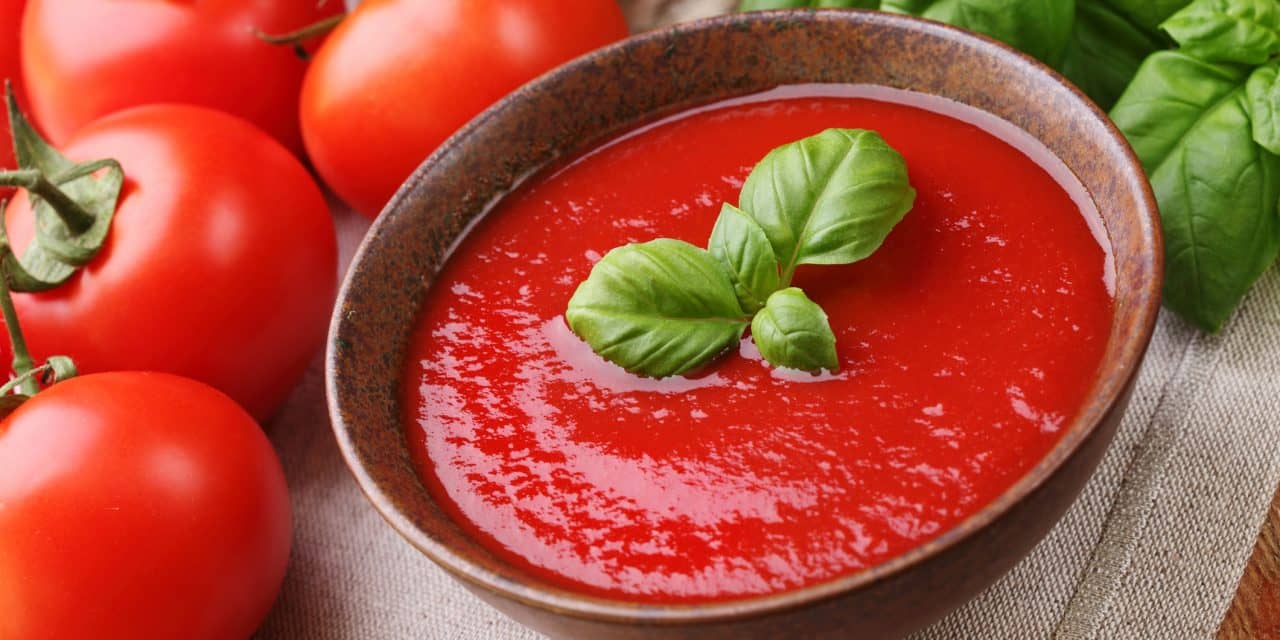Lycopene and its role in preventing prostate cancer, erectile dysfunction and Alzheimer’s
Lycopene health benefits are wide-ranging, so if you’re looking for foods to help slow aging, look for those that contain lycopene. It’s a “secret ingredient” that has contributed to long lives in Mediterranean and other countries.
What is lycopene?
Lycopene is a carotenoid, a type of plant pigment and powerful antioxidant that is the source of the red and pink color in fruits and vegetables. These include pink grapefruit, tomato, guava, papaya, and watermelon. Lycopene health benefits include having antioxidant effects, which some experts consider to be more potent than those from vitamin C.
Lycopene health benefits
Some other lycopene health benefits include:
- Preventing prostate cancer
- Promoting cardiovascular health
- Treaing erectile dysfunction
- Treating Alzheimer’s
- Treating atherosclerosis
Prostate cancer is the second most common cancer type among men worldwide. An estimated 900,000 were diagnosed in 2008.
This cancer is more prevalent in men as they age, but particular dietary prevention approaches have shown promise in clinical trials. In an eight-year study of 47,000 health professionals ingesting varying levels of dietary lycopene, those that consumed the most lycopene-rich foods experienced a statistical 21% decrease in prostate cancer risk. Additional studies have corroborated these findings, although further epidemiological research is required.
For decades, cardiovascular disease has had the highest mortality rate worldwide, compared to all other health problems.
Lycopene health benefits include treating high cholesterol, and its antioxidant properties reduce inflammation and improve the overall cardiovascular cholesterol profile, according to scientific studies.
Erectile dysfunction, while not inevitable with aging, does become more prevalent due to blood circulation, nerve function, and psychological issues in older men. Consistent lycopene consumption helps alleviate this condition by reducing oxidative stress and improving blood vessel health and blood flow to the affected area.
Lycopene and aging
Chronic inflammation is one of the consequences of aging that, if left untreated, can lead to arthritis, diabetes, cancer, or cardiovascular disease.
In a healthy scenario, inflammation develops at an injury site to signal, protect, and heal the wound. When an accumulation of harmful compounds resulting from stress, environmental pollution, and the overpowering of the body’s natural defenses causes a low-grade, nearly undetectable level of inflammation, inflammation can persist for years and develop into disease. This can occur unbeknownst to the sufferer.
In a study, an elevation of C-reactive protein and inflammation suppressed lycopene concentration. Subsequent supplementation of the antioxidant reduced DNA damage by approximately 50%.
Oxidation is an additional age-related precursor to disease, arising due to environmental pollutants and the over-burdening of the body’s natural stores of antioxidants. Healthy cells are damaged when oxygen circulates in the body, and the resulting free radicals are normally neutralized by the body’s antioxidant defense system.
In modern times, however, the sheer high-level load of toxins in the environment and resultant stress increases the number of healthy DNA mutations that free radicals cause. If this is left untreated, the mutations can replicate and disease can develop. To compensate for the extra oxidation damage, supplementing with dietary or nutraceutical antioxidants is necessary to prevent cancer, heart disease, Parkinson’s, and Alzheimer’s diseases.
According to the Linus Pauling Institute Micronutrient Center, in the late 1980s lycopene garnered significant attention when researchers discovered that its antioxidant activity delivered twice the impact compared with beta carotene.
Do I have a lycopene deficiency?
It only becomes clear that you are lacking lycopene in your diet if consistent deficiency leads to chronic illnesses characterized by oxidation, such as cardiovascular disease and cancer.
But a more accurate, beneficial and logical indicator, and a way to ensure you receive all the lycopene health benefits on offer, is ensuring that your diet includes a variety of fruits and vegetables, including pink, orange and red selections.
How can I add lycopene to my diet?
The most concentrated lycopene sources are tomato paste, tomato purée, tomato soup, vegetable juice cocktail, watermelon and pink grapefruit.
Researchers have concluded that cooking lycopene-rich foods, such as tomatoes, in fat-based ingredients such as oils, increases its bioavailability and maximizes the beneficial effects.
Cooked tomatoes can contain up to 35% more lycopene than raw ones because heat releases the substance from tomato cell walls.
What is the optimal serving or dose?
There is no determined daily value for lycopene, but some experts recommend taking 15,000 IU (9 mg) daily of a supplemental lycopene formula that also includes mixed carotenoids. This is because they work together synergistically to enhance antioxidant effects.
Side effects
The most marked side effect of lycopene supplementation is harmless and evident only at consistently high-level supplementation – a deep orange discoloration of the skin called lycopenodermia. This effect subsides naturally when you stop having so much lycopene.
Contraindications
Lycopene is a common dietary nutrient and should not interact with medications. If tomato or other lycopene-rich food allergies, or other health conditions related to antioxidant levels – such as chemotherapy treatment – are present, consult a physician prior to taking supplements.
References
1. University of Maryland Medical Center. “Carotenoids.” February 27, 2009. http://www.umm.edu/patiented/articles/what_carotenoids_000039_2.htm
2. Linus Pauling Institute Micronutrient Information Center. “Carotenoids.” June 2009.
http://lpi.oregonstate.edu/infocenter/phytochemicals/carotenoids/
3. McEneny, Jane. The Journal of Nutritional Biochemistry. “Lycopene Intervention Reduces Inflammation and Improves HDL Functionality in Moderately Overweight Middle-aged Individuals.” January 2013.
http://www.sciencedirect.com/science/article/pii/S095528631200099X
4. Gao, Ji-Xue. Die Pharmazie – An International Journal of Pharmaceutical Sciences. “Lycopene Ameliorates Erectile Dysfunction in Streptozotocin-Induced Diabetic Rats. March 2012.
http://www.ingentaconnect.com/content/govi/pharmaz/2012/00000067/00000003/art00011
5. Heber, David, et al. Experimental Biology and Medicine. “Overview of Mechanisms of Action of Lycopene.” 2002.
http://ebm.rsmjournals.com/content/227/10/920.full.pdf
6. American Cancer Society. “Lycopene.” May 13, 2010.
http://www.cancer.org/treatment/treatmentsandsideeffects/complementaryandalternativemedicine/dietandnutrition/lycopene
7. Prostate Cancer U.K. “Prostate Cancer.”
http://www.cancerresearchuk.org/cancer-info/cancerstats/world/prostate-cancer-world/
Last Reviewed 10/Feb/2017
Editor
Latest posts by Editor (see all)
- Oily fish and diabetes prevention - 04/06/20
- Manage the andropause - 11/12/17
- Testing testosterone levels - 07/12/17







